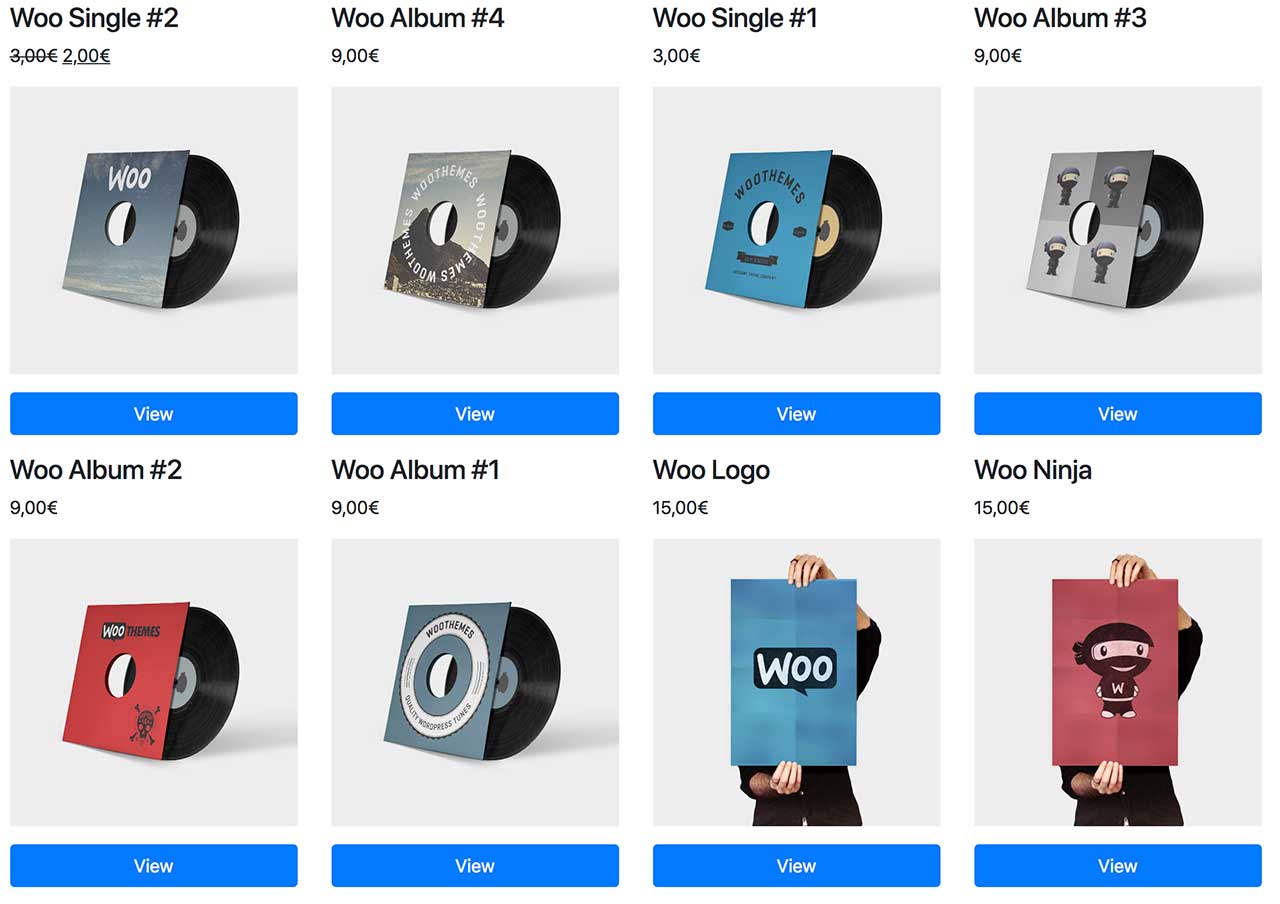In this article we will see how to get the list of products in a WooCommerce store using Node.js and the WooCommerce REST API. We will use Ubuntu Server 16.04 with nginx.
The package.json file
The core modules are ExpressJS and WooCommerce. The others only serve to implement the accessory functions of our app such as authentication.
{
"name": "WCNode",
"version": "1.0.0",
"description": "WCNode",
"author": "Nome Cognome <account@sito.com>",
"dependencies": {
"body-parser": "^1.17.2",
"cookie-parser": "^1.4.1",
"ejs": "^2.5.6",
"express": "^4.15.3",
"helmet": "^2.1.1",
"serve-favicon": "^2.4.3"
"woocommerce": "^2.4.0"
},
"license": "MIT"
}
At this point we install the modules:
npm install
SSL settings
We create a new set of rules for nginx after acquiring root privileges ( sudo -i and then nano /etc/nginx/sites-available/wcnode ):
upstream wcnode {
server 127.0.0.1:3000;
}
server {
listen 80;
server_name wcnode.sito.com;
root /home/wcnode/www;
index index.html;
client_max_body_size 8m;
location / {
try_files $uri @wcnode;
}
location @wcnode {
proxy_pass https://wcnode;
proxy_set_header X-Real-IP $remote_addr;
proxy_set_header Host $host;
proxy_set_header X-Forwarded-For $proxy_add_x_forwarded_for;
proxy_http_version 1.1;
proxy_set_header Upgrade $http_upgrade;
proxy_set_header Connection "upgrade";
}
}
Then we enable the new set of rules:
ln -s /etc/nginx/sites-available/wcnode /etc/nginx/sites-enabled/wcnode
If you have not already installed the Let's Encrypt tool you can do it as follows: first, add the repository:
add-apt-repository ppa:certbot/certbot
Then update the package list:
apt-get update
Finally install Certbot:
apt-get install python-certbot-nginx
Before restarting nginx, we get an SSL certificate from Let's Encrypt:
certbot --nginx -d wcnode.sito.com
We choose option 2 during the installation in order to have the SSL redirect inserted in our set of rules.
Now we can copy the certificate files into the directory of our app:
cp /etc/letsencrypt/live/wcnode.sito.com/fullchain.pem > /home/wcnode/app/fullchain.pem && chown wcnode:wcnode /home/wcnode/app/fullchain.pem
cp /etc/letsencrypt/live/wcnode.site.com/privkey.pem > /home/wcnode/app/privkey.pem && chown wcnode:wcnode /home/wcnode/app/privkey.pem
Now we have to create a new service for systemd so that the application keeps running and is live at reboot. We type nano /etc/systemd/system/wcnode.service and insert the following contents:
[Service]
WorkingDirectory=/home/wcnode/app
ExecStart=/usr/local/bin/node app.js
Restart=always
StandardOutput=syslog
StandardError=syslog
SyslogIdentifier=wcnode
User=wcnode
Group=wcnode
Environment=NODE_ENV=production
[Install]
WantedBy=multi-user.target
Now we can enable the service:
systemctl enable wcnode
And we start it:
systemctl start wcnode
Let's test the nginx configuration:
nginx -t
If everything is ok, we restart it:
systemctl restart nginx
The app code
Basically, a GET request will be performed to the WooCommerce store using the REST API endpoint /wp-json/wc/v2/products with our credentials.
The base structure of our app is as follows:
'use strict';
const express = require('express');
const fs = require('fs');
const https = require('https');
const port = process.env.PORT || 3000;
const app = express();
const routes = require('./routes');
const API = require('./lib/API');
const sslOptions = {
key: fs.readFileSync('privkey.pem'),
cert: fs.readFileSync('fullchain.pem')
};
app.disable('x-powered-by');
app.set('view engine', 'ejs');
app.use( (req, res, next ) => {
req.API = API;
next();
});
app.get('/products', routes.products);
https.createServer(sslOptions, app).listen(port);
The management of calls to the API is delegated to the API class that we have made available in all the routes of our app through the middleware function defined in .use() .
In this way, the request object now has a reference to this class that is visible throughout the application lifecycle.
The class is very simple. First, it gets the WooCommerce module and defines the basic options:
'use strict';
const WC = require('woocommerce');
const WooCommerce = new WC({
url: 'https://ecommerce.com',
ssl: true,
consumerKey: 'ck_123456789abcd',
secret: 'cs_abcdefg12345'
});
Then comes the body of the class:
class API {
static products() {
return WooCommerce.get('/products');
}
}
module.exports = API;
The static products() method returns a Promise that can have two results:
- The request is successful; an array of objects is returned.
- The request fails; an error is returned with details.
We use this method in our route:
'use strict';
// routes/index.js
module.exports = {
products: (req, res) => {
req.API.products().then(data => {
res.render('products', {products: data.products});
}).catch(err => {
res.json(err);
});
}
};
The result is shown below.

